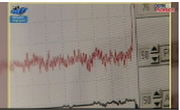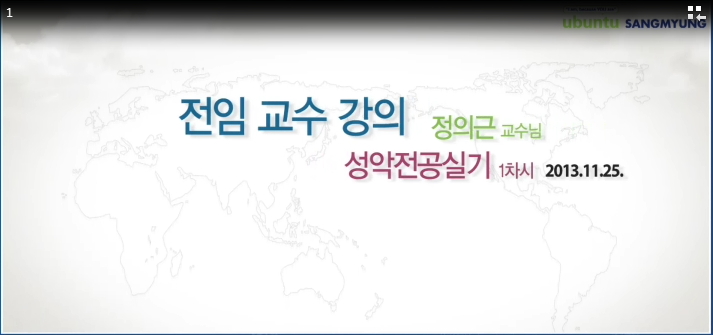This study was performed to discover deception detectors using KLIWC(korean Linguistic Inquiry and Word Count) for detecting deception(faking) in online user reviews. The three studies were conducted to explore the deception detectors in online review...
http://chineseinput.net/에서 pinyin(병음)방식으로 중국어를 변환할 수 있습니다.
변환된 중국어를 복사하여 사용하시면 됩니다.
- 中文 을 입력하시려면 zhongwen을 입력하시고 space를누르시면됩니다.
- 北京 을 입력하시려면 beijing을 입력하시고 space를 누르시면 됩니다.

한국어 언어분석 프로그램(KLIWC)을 이용한온라인 기만 사용후기 연구 = The study of online deceptive consumer reviews using KLIWC
한글로보기https://www.riss.kr/link?id=A101801723
- 저자
- 발행기관
- 학술지명
- 권호사항
-
발행연도
2016
-
작성언어
-
-
주제어
온라인 사용후기 ; 기만 ; 거짓말 ; 기만 탐지 ; 거짓말 탐지 ; online review ; deception ; lie ; deception detectation ; lie detectation ; LIWC ; KLIWC
-
KDC
300
-
등재정보
KCI등재
-
자료형태
학술저널
-
수록면
69-92(24쪽)
-
KCI 피인용횟수
2
- 제공처
-
0
상세조회 -
0
다운로드
부가정보
다국어 초록 (Multilingual Abstract)
This study was performed to discover deception detectors using KLIWC(korean Linguistic Inquiry and Word Count) for detecting deception(faking) in online user reviews. The three studies were conducted to explore the deception detectors in online reviews. In study 1 and study 2, we compare deception reviews that imply intention of deception as the basic properties with real reviews in order to find deception detectors. Study 3 was conducted to find which deception detectors are in positive deceptions(positive reviews of unsatisfactory products) and negative deceptions( negative reviews of satisfied products). The differences between deception reviews and real reviews have been explored by each indicator because KLIWC provides independently 39 linguistic indicators and 44 psychological indicators. In all of three studies, it is commonly found that differences of the linguistic indicators between two conditional reviews are morpheme, common noun and postposition, and differences of psychological indicators are emotional or emotional processes, positive emotions, positive feeling, and feeling/perception process. Using ratios of these variables are higher in the deception reviews than in the real reviews. In Study 1 and Study 2, including deceptive intention, the different linguistic indicators that were found from both of two studies are sentence, syntactic word, morpheme, common noun, postposition, general an adverb, desinence, and estimation of nouns loanword. The different psychological indicators are Emotional or emotional processes, positive emotions, positive feeling, cognitive processes, confidence, sense/perceptual processes, social processes, communicate, family, home, body condition and symptoms. As above, they higher in the deception reviews than in the real reviews. There is possibility that these indicators are deception detector in the online reviews.
참고문헌 (Reference)
1 목정수, "한국어 동사·어미 범부와 주어 인칭의 상관관계" 언어교육원 39 (39): 529-558, 2003
2 이학식, "정보제공자와 정보수용자의 특성이 부정적 구전의 수용성에 미치는 영향" 5 (5): 33-44, 1994
3 이은재, "인터넷쇼핑 이용후기 메시지의 신뢰평가와구매시점 및 구매 후 행동특성연구" 국제e-비즈니스학회 8 (8): 155-170, 2007
4 전우영, "인터넷 쇼핑에서 사용후기가 제품에 대한 평가와 구매의도에 미치는 영향: 성차의 역할을 중심으로" 한국소비자·광고심리학회 7 (7): 113-129, 2006
5 최인혁, "온라인(Online) 상에서의 제품유형에 따른 소비자의 브랜드 의존성" 한국유통학회 6 (6): 109-133, 2002
6 劉海濱, "온라인 후기 게시판 신뢰 영향요인 연구 : 쇼핑몰과 사용자 특성을 중심으로" 영남대학교 대학원 2012
7 박철, "온라인 소비자 구전에 대한 내용분석:사이트 유형과 제품유형에 따른 차이를 중심으로" 한국방송광고공사 (70) : 91-118, 2006
8 유은진, "온라인 사용후기가 제품에 대한 태도와 구매의도 변화에 미치는 영향 : 브랜드력, 정보의 방향성, 정보의 동의성을 중심으로" 연세대학교 대학원 2008
9 정수연, "온라인 구전에 관한 내용 분석: 몰유형과 제품유형에 따른 차이를 중심으로" 497-505, 2005
10 김지영, "상품후기 작성자에 대해 상품후기 독자가 느끼는 유사성이 상품후기 독자에게 미치는 영향" 한국경영정보학회 18 (18): 67-90, 2008
1 목정수, "한국어 동사·어미 범부와 주어 인칭의 상관관계" 언어교육원 39 (39): 529-558, 2003
2 이학식, "정보제공자와 정보수용자의 특성이 부정적 구전의 수용성에 미치는 영향" 5 (5): 33-44, 1994
3 이은재, "인터넷쇼핑 이용후기 메시지의 신뢰평가와구매시점 및 구매 후 행동특성연구" 국제e-비즈니스학회 8 (8): 155-170, 2007
4 전우영, "인터넷 쇼핑에서 사용후기가 제품에 대한 평가와 구매의도에 미치는 영향: 성차의 역할을 중심으로" 한국소비자·광고심리학회 7 (7): 113-129, 2006
5 최인혁, "온라인(Online) 상에서의 제품유형에 따른 소비자의 브랜드 의존성" 한국유통학회 6 (6): 109-133, 2002
6 劉海濱, "온라인 후기 게시판 신뢰 영향요인 연구 : 쇼핑몰과 사용자 특성을 중심으로" 영남대학교 대학원 2012
7 박철, "온라인 소비자 구전에 대한 내용분석:사이트 유형과 제품유형에 따른 차이를 중심으로" 한국방송광고공사 (70) : 91-118, 2006
8 유은진, "온라인 사용후기가 제품에 대한 태도와 구매의도 변화에 미치는 영향 : 브랜드력, 정보의 방향성, 정보의 동의성을 중심으로" 연세대학교 대학원 2008
9 정수연, "온라인 구전에 관한 내용 분석: 몰유형과 제품유형에 따른 차이를 중심으로" 497-505, 2005
10 김지영, "상품후기 작성자에 대해 상품후기 독자가 느끼는 유사성이 상품후기 독자에게 미치는 영향" 한국경영정보학회 18 (18): 67-90, 2008
11 김종률, "범죄수사와 심리학: 범죄자 유형파악과 형사피의자에 대한 행동분석" 2001
12 이현선, "구전으로서 온라인 사용 후기의 효과에 관한 연구" 한국PR학회 8 (8): 234-268, 2004
13 조은경, "거짓말의 특징과 탐지" 한국심리학회 21 (21): 33-65, 2002
14 Pennebaker, James W., "Words of wisdom: Language use over the lifespan" 85 : 291-301, 2003
15 Brown, Jo, "Word of mouth communication within online communities: Conceptualizing the online social network" 21 (21): 2-20, 2007
16 Fogg, B. J., "Web credibility research: A method for online experiments and early study results" 295-296, 2001
17 Smith, Donnavieve Nicole, "Trust Me, Would I Steer You Wrong? The Influence of Peer Recommendations Within Virtual Communities" University of Illinois at Chicago 2002
18 Porter, Stephen, "The language of deceit: An investigation of the verbal clues to deception in the interrogation context" 20 : 443-458, 1996
19 Hancock, Jeffrey T, "The Oxford handbook of Internet psychology" Oxford University Press 287-301, 2007
20 Ekman, Paul, "Telling lies. Clues to deceit in the marketplace, politics, and marriage" W. W. Norton & Company 1992
21 Knapp, Mark L., "Telling it like it isn’t: A review of theory and research on deceptive communications" 5 : 270-285, 1979
22 Raskin, David C., "Statement validity assessment: Interview procedures and content analysis of children’s statements of sexual abuse" 12 : 265-291, 1991
23 Sapir, Avinoam, "Scientific Content Analysis. Phoenix: Laboratory for Scientific Interrogation"
24 Johnson, Marcia K, "Reality monitoring" 88 : 67-85, 1981
25 Preview new media age, "Online customer reviews important to regular travellers"
26 Schindler, Robert M., "Online consumer psychology: understanding and influencing behavior in the virtual world" Lawrence Erlbaum Associates 35-61, 2005
27 Smith, Donnavieve Nicole, "Online Peer and Editorial Recommendations, Trust, and Choice in Virtual Markets" 19 (19): 15-37, 2005
28 Hancock, Jeffrey T., "On Lying and Being Lied To: A Linguistic Analysis of Deception in Computer-Mediated Communication" 45 (45): 1-23, 2008
29 Ickes, William, "Machiavellianismand self-monitoring: As different as “me” and “you”" 4 : 58-74, 1986
30 Newman, Matthew L., "Lying Words: Predicting Deception from Linguistic Style" 29 : 665-675, 2003
31 Hancock, Jeffrey T., "Language use in computer-mediated communication: The role of coordination devices" 31 : 91-110, 2001
32 Bond, Gary D, "Language of lies in prison: Linguistic classification of prisoners’ truthful and deceptive natural language" 19 : 313-329, 2005
33 Rabon, Don, "Investigative discourse analysis" Carolina Academic Press 1994
34 Buller, David B, "Interpersonal deception theory" 6 : 203-242, 1996
35 Bickart, Barbara, "Internet forums as influential sources of consumer information" 15 (15): 31-40, 2001
36 Rudacille, Wendell C, "Identifying lies in disguise" Kendall/Hunt 1994
37 McGuire, William J., "Handbook of social psychology" Addison-Wesley 136-314, 1968
38 Ott, Myle, "Finding deceptive opinion spam by any stretch of the imagination" Association for Computational Linguistics 309-319, 2011
39 Bhatnagar, Parija, "Fake reviews on the Web…caveat emptor"
40 Bristor, Julia M, "Enhanced Explanations of Word-of mouth Communications: The Power of Relationships" 4 : 51-83, 1990
41 Hennig-Thurau, Thorsten, "Electronic Word-of-Mouth: Motives for and Consequences of Reading Customer Articulations on the Internet" 8 : 51-74, 2004
42 Burgoon, Judee K, "Does participation affect deception success? A test of the interactivity principle" 27 : 503-534, 2001
43 McKnight, D. Harrison, "Developing and Validating Trust Measures for ECommerce: An Integrative Typology" 13 (13): 334-359, 2002
44 Vrij, A., "Detecting lies and deceit: The psychology of lying and the implications for professional practice" Wiley 2000
45 Vrij, A., "Detecting lies and deceit: Pitfalls and opportunities" Wiley 2008
46 Burgoon, Judee K, "Detecting deception through linguistic analysis" 2665 : 958-, 2003
47 Little, Ayron, "Detecting Deception in Testimony" 13-18, 2008
48 Aaker, David A, "Deceptive advertising, Con sumerism: search for the consumer interest" The Free Press 137-156, 1974
49 Carlson, John R., "Deception in Computer-Mediated Communication" 13 : 5-28, 2004
50 Vartapetiance, A., "Deception Detection for the Tangled Web" (Special Issue) : 2012
51 DePaulo, Bella M., "Cues to deception" 129 : 74-118, 2003
52 Zhou, L., "Cues to Deception in Online Chinese Groups" 2008
53 Vrij, A., "Criteria-based content analysis: A qualitative review of the first 37 studies" 11 : 3-41, 2005
54 Undeutsch, Udo, "Credibility assessment" Kluwer 101-119, 1989
55 Schiffman, Leon G, "Consumer behavior" Prentice Hall 2000
56 Yoo, K. H., "Comparison of Deceptive and Truthful Travel Reviews" 2009 : 37-47, 2009
57 Donath, Judith S, "Communities in Cyberspace" Routledge 29-59, 1999
58 Adams, Susan H, "Communication under stress: Indicators of veracity and deception in written narratives" Virginia Polytechnic Institute and State University 2002
59 Skillicorn, David B, "Beyond Keyword Filtering for Message and Conversation Detection" 231-243, 2005
60 Zhou, L., "Automated Linguistics Based Cues for Detecting Deception in Text-based Asynchronous Computer-Mediated Communication" 13 : 81-106, 2004
61 Sparkman, Richard M., Jr., "Attribution theory and advertising Effectiveness" 7 : 219-224, 1980
62 Salo, Jaro, "A conceptual model of trust in the online environment" 31 (31): 604-621, 2007
63 Zhou, L., "A comparison of classification methods for predicting deception in computermediated communication" 20 : 139-165, 2004
64 Lee, Matthew K. O., "A Trust Model for Consumer Internet Shopping" 6 (6): 75-91, 2001
65 임종원, "A Study of the Factors Influencing WOM Effects in Online Environments" 한국마케팅학회 8 (8): 59-77, 2007
66 한국인터넷진흥원, "2011년 인터넷 이용실태 조사"
동일학술지(권/호) 다른 논문
-
대중화 단서가 구매의도에 미치는 영향: 제품 유형 및 자기-브랜드 연결의 조절효과와 타 소비자에 대해인지된 유사성의 매개효과를 중심으로
- 한국소비자학회
- 이인영 ( Inyoung Lee )
- 2016
- KCI등재
-
기업 브랜드 아우라 영향 요인과 소비자 구매의도에 관한 연구
- 한국소비자학회
- 서용구 ( Yong Gu Suh )
- 2016
- KCI등재
-
유명 스포츠인의 부정적 평판이 스폰서와 제품에 대한 소비자의 평가에 미치는 파급효과
- 한국소비자학회
- 윤성욱 ( Sung Wook Yoon )
- 2016
- KCI등재
-
터치가 소유를 이끈다: 디스플레이 화면크기와 입력방식이 온라인 쇼핑 행동에 미치는 영향
- 한국소비자학회
- 김지호 ( Gho Kim )
- 2016
- KCI등재
분석정보
인용정보 인용지수 설명보기
학술지 이력
| 연월일 | 이력구분 | 이력상세 | 등재구분 |
|---|---|---|---|
| 2026 | 평가예정 | 재인증평가 신청대상 (재인증) | |
| 2020-01-01 | 평가 | 등재학술지 유지 (재인증) |  |
| 2017-01-01 | 평가 | 등재학술지 유지 (계속평가) |  |
| 2013-01-01 | 평가 | 등재학술지 유지 (등재유지) |  |
| 2010-01-01 | 평가 | 등재학술지 유지 (등재유지) |  |
| 2008-01-01 | 평가 | 등재학술지 유지 (등재유지) |  |
| 2006-01-01 | 평가 | 등재학술지 유지 (등재유지) |  |
| 2004-01-01 | 평가 | 등재학술지 유지 (등재유지) |  |
| 2001-07-01 | 평가 | 등재학술지 선정 (등재후보2차) |  |
| 1999-01-01 | 평가 | 등재후보학술지 선정 (신규평가) |  |
학술지 인용정보
| 기준연도 | WOS-KCI 통합IF(2년) | KCIF(2년) | KCIF(3년) |
|---|---|---|---|
| 2016 | 1.48 | 1.48 | 1.67 |
| KCIF(4년) | KCIF(5년) | 중심성지수(3년) | 즉시성지수 |
| 1.7 | 1.88 | 2.351 | 0.15 |




 KCI
KCI KISS
KISS





